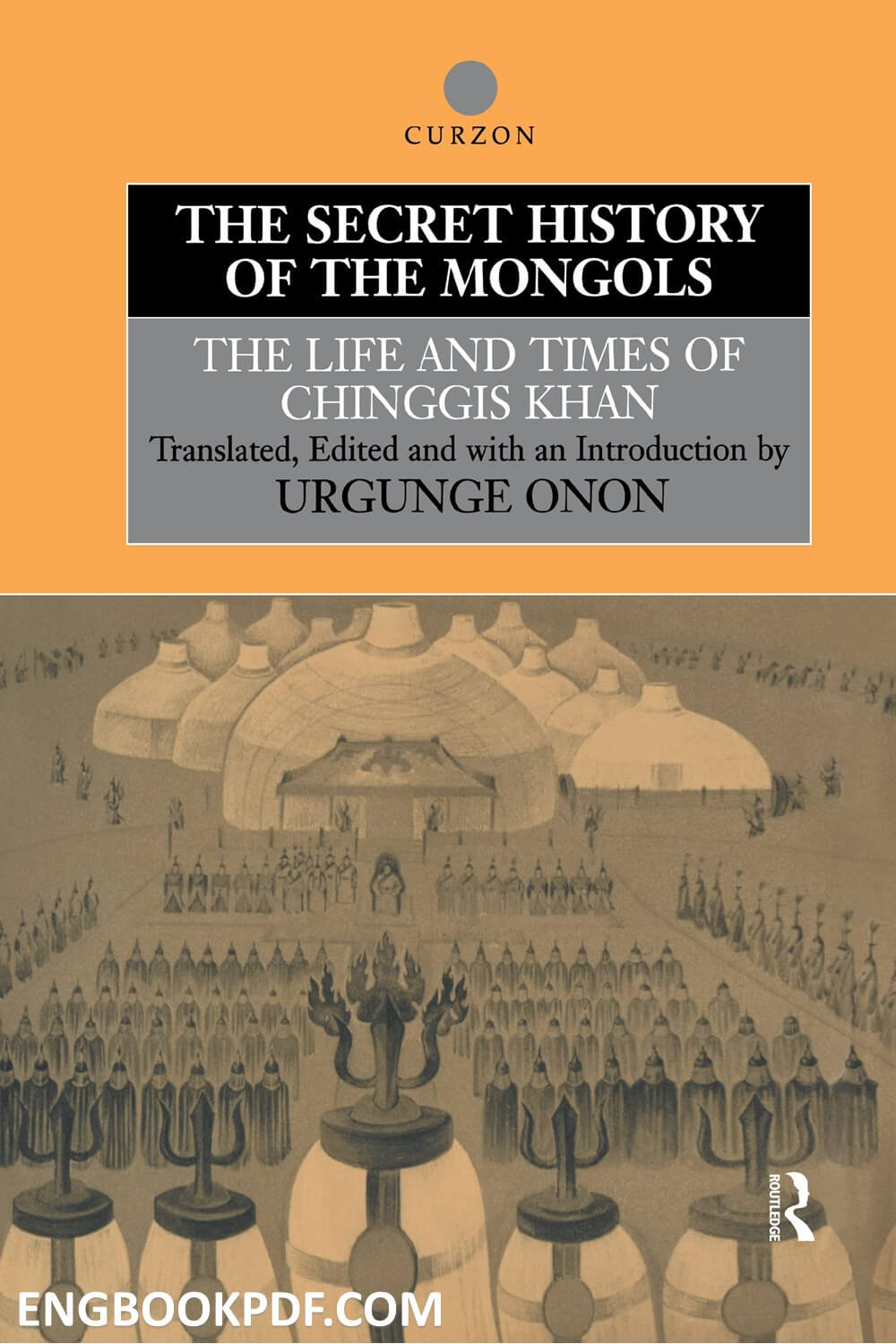The Secret History of the Mongols pdf
The Secret History of the Mongols pdf The Life and Times of Chinggis Khan by Urgunge Onon. A Mongolian Epic Chronicle of the Thirteenth Century. Tells the story of the creation of the Mongolian empire, and the leader Genghis Khan; even has a poem about his death at the end, a great read.
The Secret History of the Mongols pdf
The Secret History of the Mongols
The Secret History of the Mongols is the only surviving Mongol source about the empire. The book is mainly about the life and the career of Chinggis Khan, his ancestors and his rise to power. Chinggis Khan was not only a military genius but also a great statesman and diplomat.
Through a combination of armed force and diplomacy, he managed to merge the complex system of alliances that existed between diverse tribes into a powerful confederacy that swept across most of Eurasia, starting in 1219.
Urgunge Onon's fresh translation brings out the excitement of this epic with its wide-ranging commentaries on military and social conditions, religion and philosophy while remaining faithful to the original text. This fully annotated edition is prefaced by a 36-page introduction setting the work in its cultural and historical context.
The Mongols were a small nomadic tribe in the area of Ergön2 and kölen Natur.3 This Mongol tribe moved to the Kelüren,4 Onon, and Tula5 districts around the years following 970,6 and was one of the many tribal peoples shifting about nomadically during this period.
The people of the felt walled tents were the Tatars, the Onggirads, the Kereyids, the Naiman's, the Tayichi’uds, and the Merkids. All these groups spoke a language akin to that of the Mongols, but they were only included in the category of Mongols after they had been conquered by, or pledged alliance to, the Mongol tribe.
Chinggis Qahan’s ancestors belonged to the Kiyad group of the Borjigin clan of the Mongol tribe. Tribal feuds and struggles for power continued for many generations among the tribes, while foreign enemies such as the Liao Dynasty and Jin ruled them from the east.
The Tangut nation (1002–1227) to the south and the Uighurs to the west were awaiting their turn to attack. By the twelfth century, however, the nations surrounding the area of present-day Mongolia were growing weaker; this was especially so of the Jin Dynasty, which was at war with the Song Dynasty of southern China. At the same time the Mongols, along with the other nomadic tribes, were becoming stronger economically through their vast herds of livestock.
To enjoy this new prosperity, they sought to put an end to tribal warfare and live in peace with one another, and at the same time to present a united front to external enemies. Chinggis Qahan, born in 1162, fulfilled a need for his people.
The many tribes were strong but lacked a leader to weld them into one. Temüjin was first elevated as Chinggis Qahan by his tribe, in 1189, and confirmed as such by all the Mongols in 1206, at a great gathering of Mongol nobles and high ranking commanders of the Mongol cavalry on the Kelüren River. This gathering marked the unification of the Mongol tribes and the birth of the Mongol military machine and was the first step towards the creation of a new order on the steppe.
Before Chinggis Qahan, the Mongols lacked a sense of their identity as a people. Chinggis’ historic role was to endow them with such a sense. His strong identification with his ancestral homelands, almost akin to modern nationalism, is well illustrated by the following incident.
He sent a message to three of his followers who had left him to join one of his Mongol rivals. He told them that they were now on their own, but that they should never let anyone other than a Mongol set up camp at the source of the three rivers, the Kelüren, the Tu’ula, and the Onon.
The Mongol tribes professed an ancestral Shamanism; their great deity was the sky, which they worshipped together with the spirits inhabiting the sun, the moon, the stars, the mountains, the water, the trees, and all-natural things.
As Shamanists, they had no church, nor had they a need for one, since worship was often a matter of immediate communication between the individual and the world of nature; the intermediacy of Shaman priests was an option that Chinggis himself often preferred not to use. For Shamanists, the soul is linked directly to Heaven and the individual is, therefore, the centre of his own universe.
Heaven is nothing more nor less than the consciousness of each one of us. Heaven is our guide; under it, we are born free and equal. Chinggis Qahan was never influenced by the passive philosophy of Buddhism or the rigid doctrines of Confucianism, which reduced the universe to the family or the state. The universe to which Chinggis and the Mongols owed allegiance was bound by neither kin nor place.
That is why just two million Mongols, with 129,000 cavalrymen, could establish the largest land empire in world history. source: The Secret History of the Mongols pdf.
The Secret History of the Mongols pdf
Details about: the secret history of the Mongols pdf download
- Book Title: The Secret History of the Mongols pdf A Mongolian Epic Chronicle of the Thirteenth Century.
- Author: Urgunge Onon
- Category: Historical; Medieval
- Genre: Cultural Asia
- Collection: Cultural Asia Book
- Edition: Routledge Curzon Press; Illustrated édition
- ISBN: 0-7007-1335-2
- Pages: 307 Pages
- Size: 1.6 Mo





Post A Comment:
0 comments: